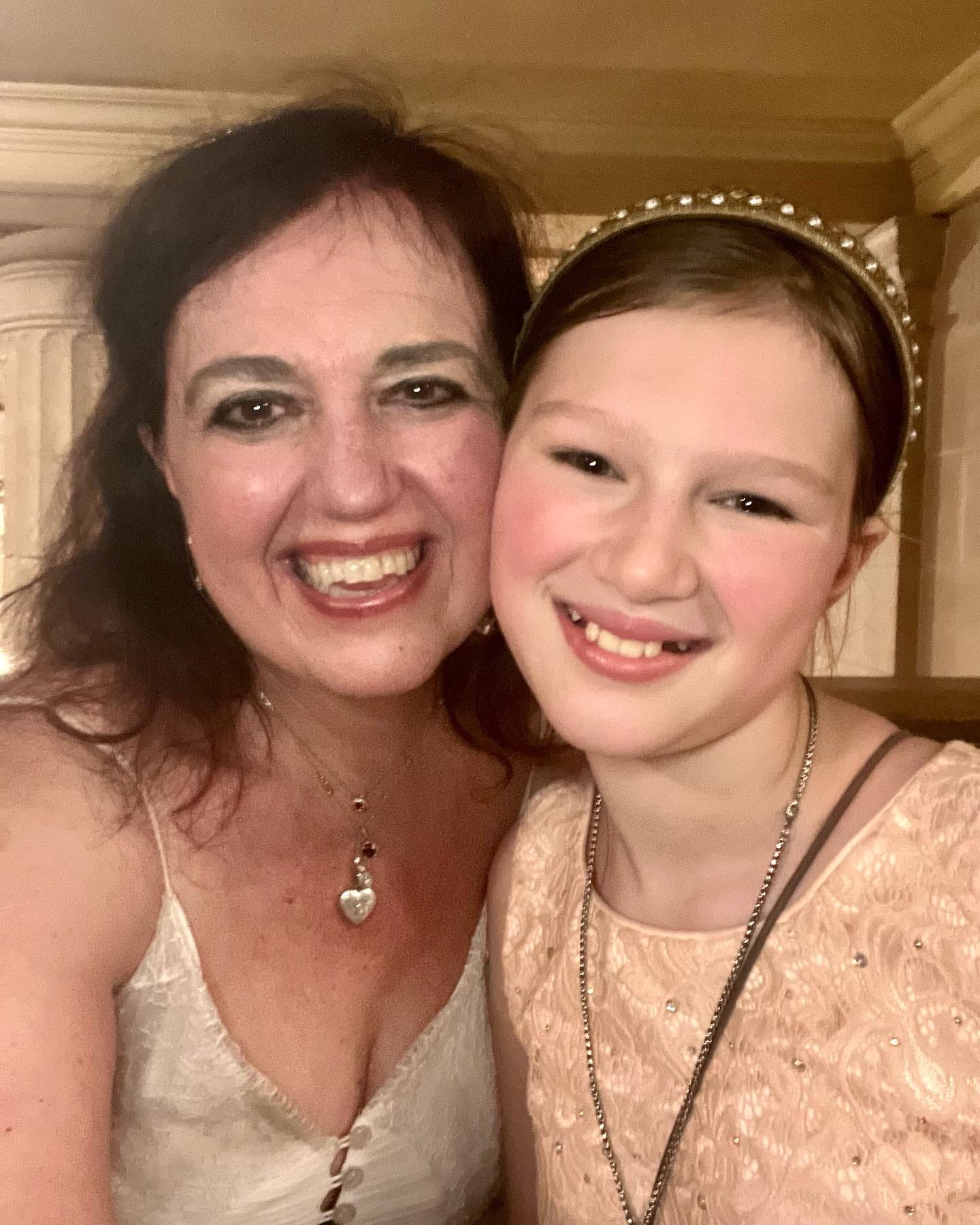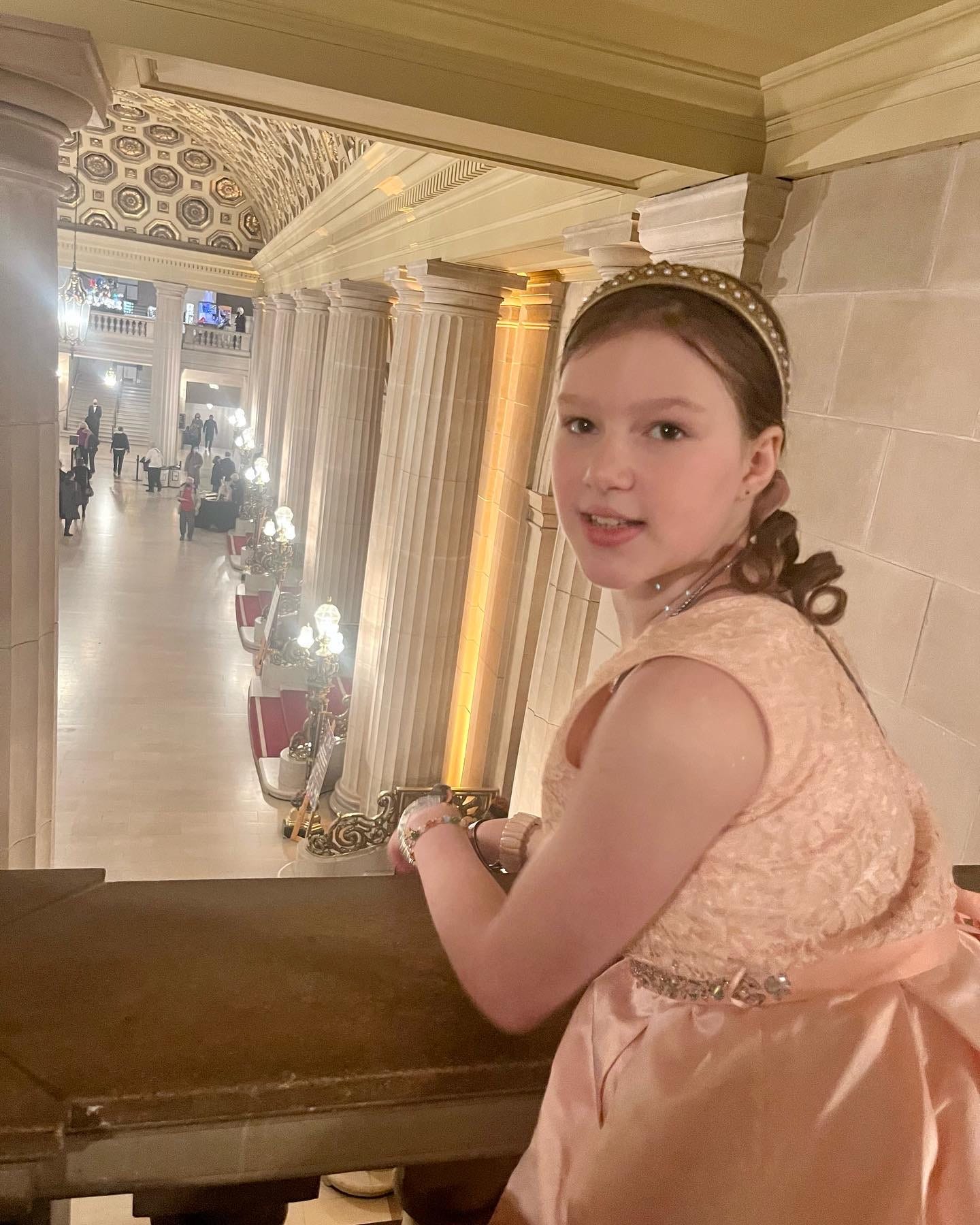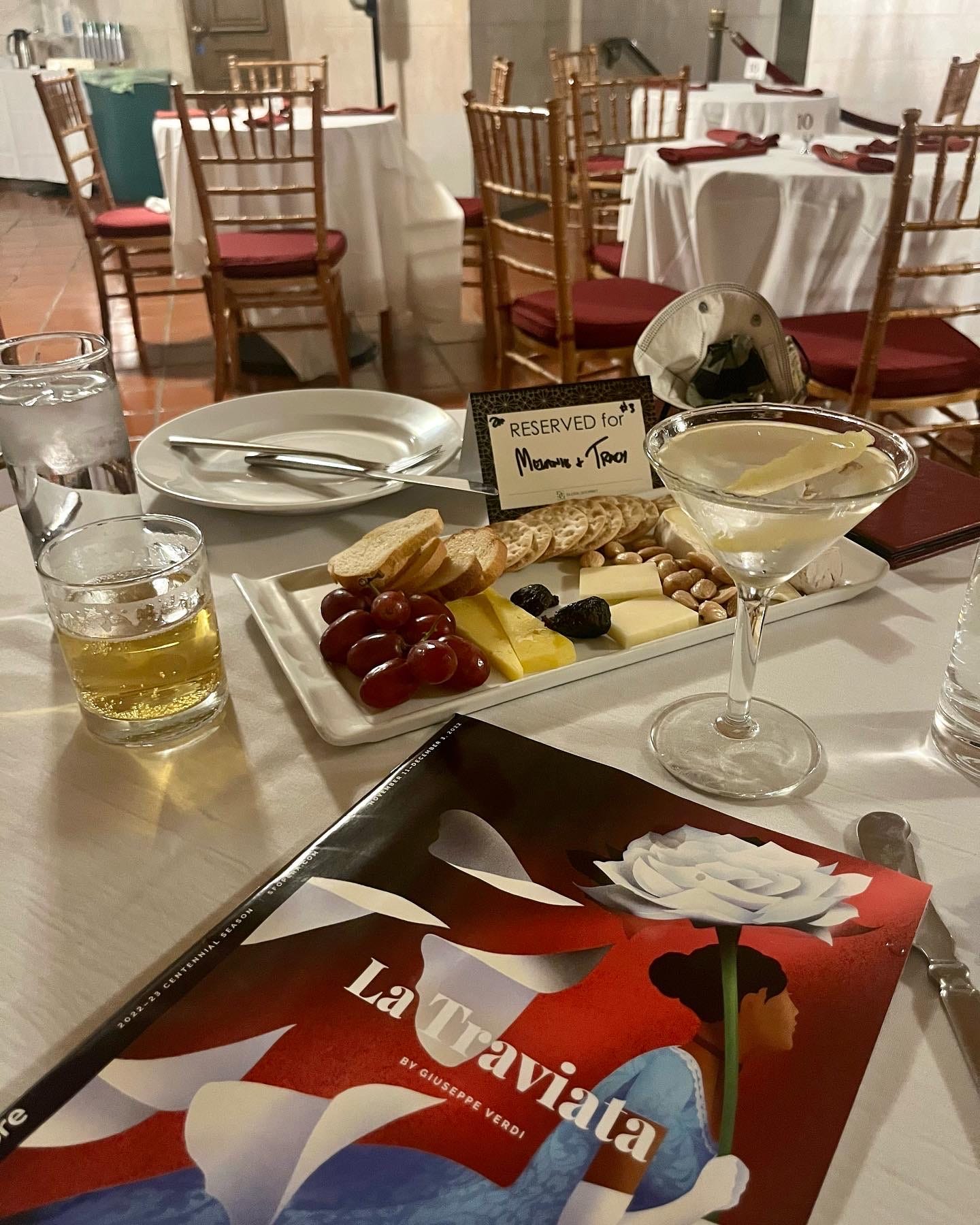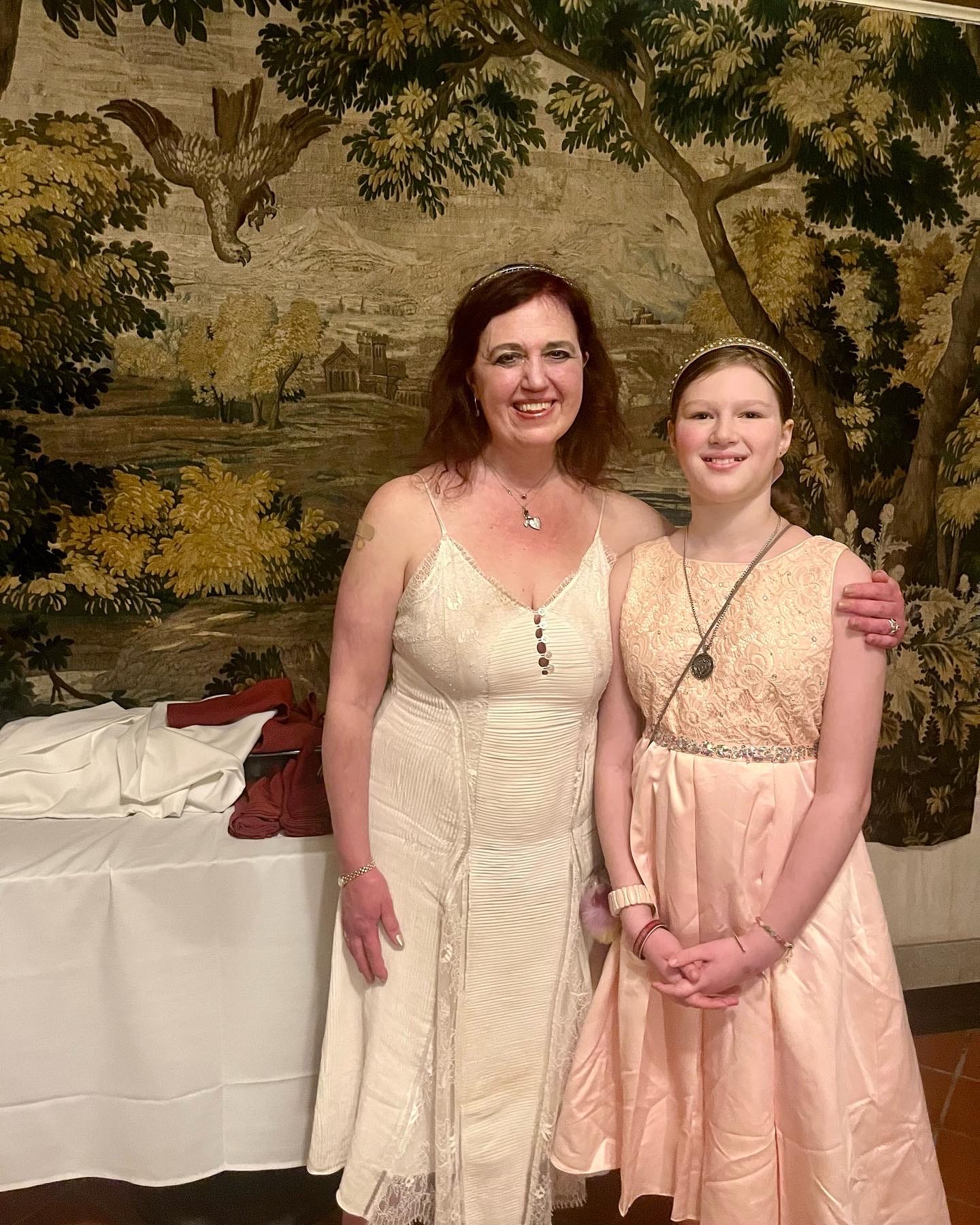Last fall, my daughter Mélanie and I saw a wonderful new production of La traviata at San Francisco Opera. It was the first time Mélanie had seen La traviata. She adored the opera. But as we sat at dinner in the North Box Restaurant at the Opera House discussing the plot, she was enraged with Giorgio Germont for convincing Violetta to give up Alfredo for his own good (Mélanie is remarkably nonviolent, but she expressed a wish to push Germont over the balcony railing where we were sitting).
Perhaps it’s her generation, but Mélanie has always had a healthily strong awareness of double standards in the way women and men are treated (even more so than her feminist mother perhaps).
At the time we saw La traviata I was in the fairly early stages of writing The Seven Dials Affair. Seeing the opera and Mélanie’s reaction made me want to write a happy ending for a character like Violetta in the opera. The result was Cressida Caldwell, sister of the murder victim in The Seven Dials Affair, whose risky love affair with a young politician is entangled in the murder mystery.
I let myself be impetuous recently. With an ardent gentleman who has nothing to offer except the exuberance of his feelings and a good leg and a good—many other things. Not to mention a quick wit. He got a friend to bring him to one of my parties. Normally I'd have sent his sort packing, for his own sake as much as mine. But he was persistent. And I was in need of diversion. Or perhaps of something deeper. I have little patience with Jeremy when he says this life is empty—I mean, one can say it is, but so is life in a great many places—but I can't deny there are moments I long for something that isn't about calculation and transaction and a careful exchange of passion for security. In any case, I gave way against all my instincts, and I've let it go on far too long.
The courtesan heroine has a long literary tradition. La Dame aux Camelias/Camille/La traviata and is almost an operatic staple, from Traviata to La bohème (Mimi and Musetta both have wealthy protectors at various points in the story) to La rondine.
Violetta celebrates the freedom of her life as a courtesan in “Sempre libere.” Magda’s “Chi il bel sogno di Doretta” in La rondine plays on another paradox of the courtesan heroine. A courtesan is a sophisticated woman of the world who has had a number of lovers, yet though she has had the freedom to choose her lovers, there’s an economic element to all of them. She may never have actually been in love. In a sense, she’s the literary female counterpart to the rakish hero whose heart has remained untouched. Of course rakish heroes get happy endings far more often than courtesan heroines.
I’ve always thought “fallen women” make some of the most interesting heroines–there’s so much history and potential conflict (not to mention that they often get to wear the best clothes; I noticed that even before I was quite old enough to understand what a “fallen woman” was :-) ). Rakish heroes often reform and settle down with virtuous young girls. Even if they think their past makes them unfit to touch the hem of their beloved’s gown, the heroines can usually persuade them otherwise (a couple of lovely scenes from Georgette Heyer’s These Old Shades and Venetia come to mind). But the double standard ensures that the rake’s female counterpart seems doomed to a tragic ending in most stories. I was going to say that none of the love affairs end happily in La traviata, La rondine, and La bohème, but in fact, Musetta and Marcello are back together at the end of La bohème. One can argue, given their history, over how long it will last, but the romantic in me likes to think they’ve learned something and it will.
This double standard in literature and opera plots of course mirrors society and repercussions such couples would face. A rake like Eugene Onégin could marry an innocent young girl like Tatiana without causing a scandal and being thrown from society (that Onégin rejects Tatiana in the Tchaikovsky opera and the Pushkin novel upon which it was based is because he doesn’t recognize the woman she will grow to be and perhaps because he wishes to spare her disillusionment). But Violetta if married Alfredo in La traviata (if they even openly continued to live together) it would spell scandal not only for Alfredo but for his innocent young sister, as Alfredo’s father explains to Violetta in the scene that enraged my daughter. Of course, the irony, as Mélanie and I discussed over dinner, is that in persuading Violetta to give up Alfredo, Germont sets in motion a chain of events that results in Alfredo’s fighting a duel and having to go abroad, an even worse scandal.
Back to my own books, the heroine of the series, Mélanie Rannoch (for whom my daughter was named, though they are very different people) was never a courtesan precisely, but orphaned and brutalized in the chaos of the Peninsular War, she ended up in a brothel, an experience she revisits investigating in the slums of Seven Dials.
"It's almost half my life ago that I worked in a place like the Three Queens." She angled a smile at a man on the other side of the street. "Not now, love. I'm on my way to a job." She looked back at Kitty. "I learnt a lot from it. I wouldn't be the person I am now without it. Which I suppose I should be grateful for, as I quite like who I am now. But at times I don't care for the memories." She kept the images at bay, but they picked at her senses. Like pecking birds. But much worse. She quite liked birds. "I hate that I was ever that powerless."
Cressida Caldwell is shocked when Mélanie Rannoch calls on her in The Seven Dials Affair.
Mélanie is very much aware that if many of the people she counts as friends in Mayfair knew the truth of her past (both the brothel and that she was a French spy), she would be deemed even more unacceptable than Cressida. She’s also aware that legally a courtesan in many ways had more control over her life and person than a married woman. As Cressida says,
A wife doesn't have the option of throwing her husband out and telling the servants to bolt the doors.
In an earlier book in the series, The Tavistock Plot, Kitty Ashford, a widow contemplating remarriage, says,
A woman gives up so much when she marries. Control of any fortune she may have. Of her children. Of her own body.
Of course Kitty does marry again, because she realizes how very much she trusts the man she loves. Just as Mélanie trusts Malcolm, for all she went into the marriage to spy on him. And Cressida ultimately risks marriage as well.
The future will not be easy for Cressida Caldwell and William Beardsley, the man she loves. But that’s lots of fodder for more stories in the series (including the novella I’m working on now). And ultimately they will manage to be happy. My own Mélanie wouldn’t stand for it otherwise.
(Special thanks to the lovely couple at the table next to ours who complimented us on our dresses and offered to take pictures).









Wonderful background. Gives the story much more depth.
Your familiarity with opera strikes me as a secret weapon. All the tropes! The twists! (and yes, the music). Makes great grist for the plotting mill. I really liked Cressida as a character, both in her sister-to-the-deceased persona--somebody who truly knew the victim from way back--and when she was in worldly demimondaine mode.
I think it's lost on a lot of American readers that prostitution in Regency London was legal. We think of that society as being obsessed with propriety and decorum, but in some ways they were ahead of us too.